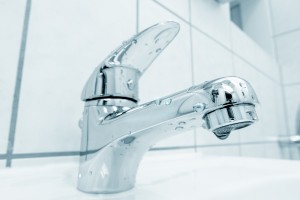Fix a Leak Week: Tips To Save Water & Money
CALL (206) 789-4944
Serving the Greater Seattle Area

It fixes a leak week and we have put together some great tips to help you detect leaks around your home, and prevent you from wasting precious water and money. Did you know 10% of homes have leaks? Those leaks waste around 90 gallons of water or more per day, which can add up to 10,000 gallons a year! All of that wasted water can add $200 or more on your water bill annually.
Toilets:
The most common and pricey type of leaks is caused by toilets because they consume approximately 27% of your water.
- A worn-out toilet flapper is the number one cause of most toilet leaks. The flapper is a piece of rubber that covers the valve connecting the toilet tank to the bowl. Over time, the flapper can decay or become covered by mineral buildup, leading to cracks and gaps that prevent it from holding water in tightly. Replacing a worn toilet flapper is fairly easy and does not cost much.
- If you think your toilet has a leak but can’t locate it, try putting a few drops of food coloring in the toilet’s tank and wait for 15 minutes. If color shows up in the bowl then its time to replace the flapper. Be sure to flush any colored water down after to avoid staining your bowl.
Faucets and Shower Heads:
A shower head that leaks 10 drips per minute wastes over 500 gallons per year and a single faucet that drips at a rate of one drip per second can waste more than 3,000 gallons of water per year.
- If your shower head has a leak it can usually be fixed by tightening the connection between the showerhead and the pipe stem by using a wrench or Teflon tape, which you can find at your local hardware store.
- Leaky faucets can be fixed by checking it’s washers and gaskets for wear. If they are old and worn out they should be replaced. This does not cost much money.
Outdoors:
- If your garden hose leaks while its on, be sure to first check that it has a tight connection to the spigot and that there aren’t any leaks coming from the hose itself. If there is still a leak you should replace the nylon or rubber hose washer.
- If you left a garden hose connected over the winter, there is a good chance your pipes will burst in the spring. Check the hose bib before you turn it on to make sure none of the pipes were damaged over the winter.
Extra Tip
- Check your water meter before and after a two hour period when no water is being used. If the readings have changed you probably have a leak somewhere in your home.
Plumbing leaks are always better to be resolved immediately so they don’t cause other problems such as mold. If you have tried all of these tips but still can’t find the source of a leak give us a call. We will be happy to locate the leak and save you some money in the long run.
CALL (206) 789-4944
Serving the Greater Seattle Area





